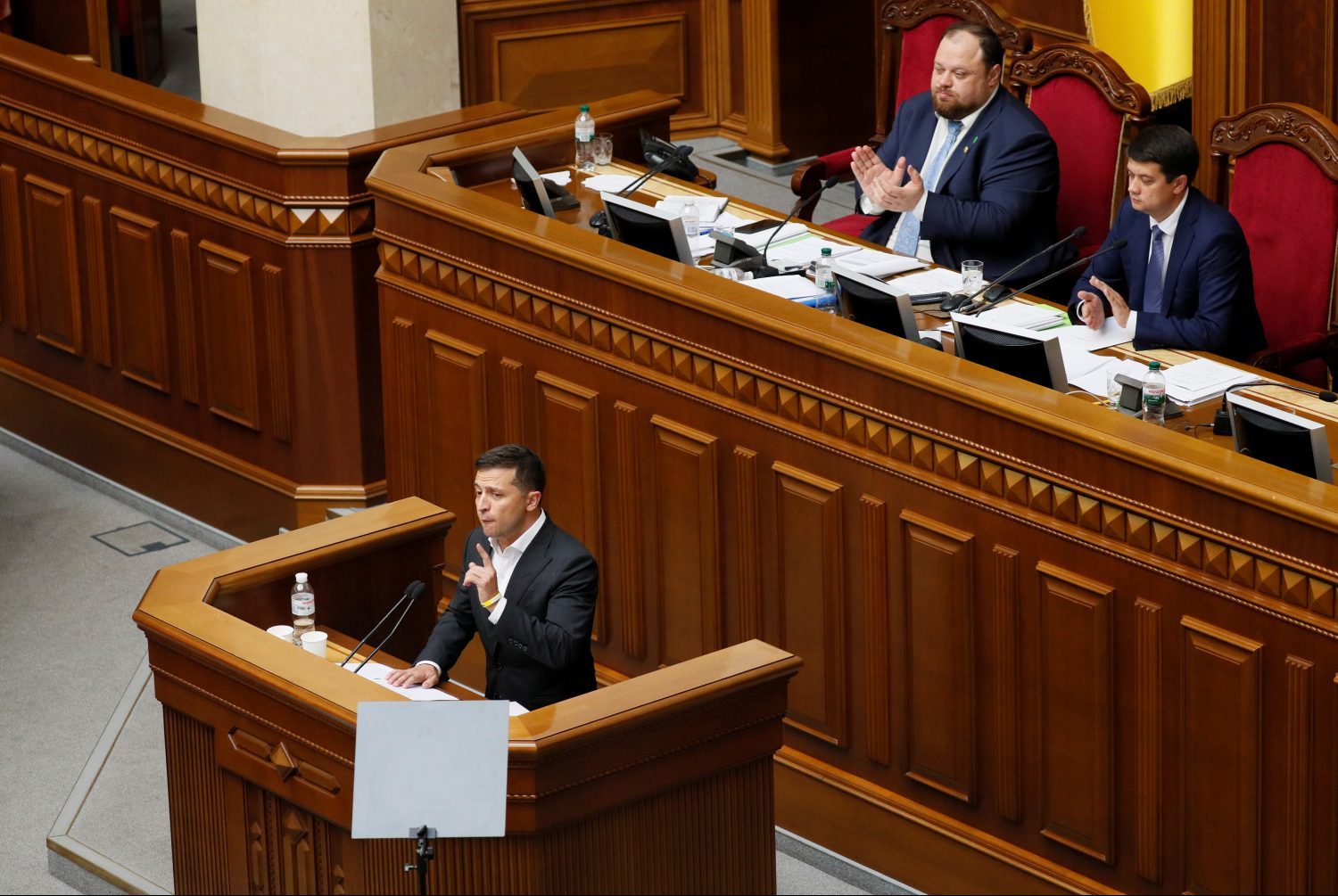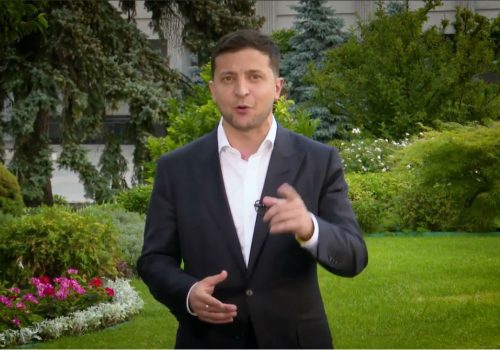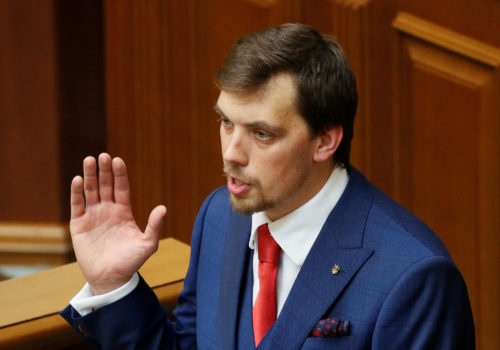For the first time in Ukraine’s history, one-party dominance in parliament allows the ruling party to pass laws with incredible speed. However, vital reforms may occasionally contain potentially dangerous clauses intended to concentrate power in the hands of the president, which most people miss, and for good reason. There’s an enormous amount of legislation flowing through parliament now.
One questionable initiative is draft law 1008 which concerns judicial reform. Judicial reform is one of the most anticipated promises made by President Volodymyr Zelenskyy during his unorthodox campaign. MPs have already supported this legislation in the first reading.
The bill would do some good things: it would reboot the Higher Qualification Commission of Judges (HQCJ) with the participation of international experts.
At the same time, the bill is fatally flawed. It doesn’t touch the High Council of Justice (HCJ), which is essential to judicial reform. The HCJ hires, fires, and suspends bad judges.
Over the last five years, the HCJ proved unable to clean up the judicial system. Namely owing to the HCJ, an overwhelming majority of judges who followed illegal orders from the Yanukovych administration during the Revolution of Dignity in 2013-2014—they imprisoned peaceful protesters and revoked their driver’s licenses for no reason—weren’t punished. Seventy percent of these judges did not receive any punishment, and they kept their official positions.
Stay updated
As the world watches the Russian invasion of Ukraine unfold, UkraineAlert delivers the best Atlantic Council expert insight and analysis on Ukraine twice a week directly to your inbox.
Moreover, the HCJ also prevented good people from entering the system and greenlighted bad ones. Without any explanation, the HCJ stalled the appointment of Viktoriia Matsedonska, one of the few judges who stood up to protect peaceful meetings during the Revolution of Dignity. At the same time, the HCJ advised Poroshenko to appoint at least 44 candidates with poor integrity records to the Supreme Court.
On other tests, the new administration is signaling that it isn’t serious about judicial reform.
It’s nearly been two months since the National Anti-Corruption Bureau released tapes in which they had wire-tapped the office of Kyiv District Administrative Court director Pavlo Vovk. These tapes reveal how Vovk and other judges scheme to illegally influence the judicial system. In particular, they decided to obstruct the activities of the HQCJ in order to avoid passing the qualification assessment and predetermine the appointment of new committee members. These tapes caused a major public reaction, but the HCJ refused to suspend the judges exposed by the tapes. There has been no reaction from Zelenskyy’s office for two months. The president has the power to initiate procedures to liquidate this sham “court” that has harassed reformers for the last five years.
The president’s position toward the appointment of two HCJ members that he selects also invites a raised eyebrow. For the first time, four candidates with positive reputations won the competition. Despite too many good options, Zelenskyy is reluctant to choose. This may be a sign of his intent to reappoint discredited and dependent members of the HCJ, who have already been making the rounds at Bankova.
After taking stock of Zelenskyy’s action and inaction on judges and courts, it is perfectly kosher to ask: is the president aware that a true cleanup of the judicial system requires more than legislation? If the president and his team truly wish to fix Ukraine’s subpar judiciary reform, he should carry out these essential steps:
Eurasia Center events

Change the composition of the High Council of Justice as well as that of the Higher Qualification Commission of Judges. To do so, bill 1008 already submitted for approval should be amended as follows:
- Stipulate a “weightier” role for international experts on selection and ethics committees; international experts should constitute the majority on such committees (4 of 6 persons);
- Establish rules that would enable the dismissal of disreputable HCJ/ HQCJ members through a special session of the HCJ and international experts, provided that at least two international experts support such a decision;
- Establish duties of the ethics committees: verification of all active HCJ members and confirmation of their compliance with an integrity check in a 30-day term since enactment of the law;
- The results of the qualification assessment for judges whose honesty is reasonably in doubt should be subject to review by a re-elected HQCJ;
- Provide an opportunity for the HQCJ to establish its own operational rules after their re-election.
The president can push through a good bill that would include these steps.
Zelenskyy’s predecessor tried to clean up the courts and failed miserably. The public demand for judicial reform and real courts and judges and former Petro Poroshenko’s inability to deliver on these promises became one of the key reasons for his defeat. Now the same task will become a major test for Zelenskyy.
Kateryna Butko is the head of PROSUD, a civil society watchdog in Kyiv, Ukraine.
Further reading
The views expressed in UkraineAlert are solely those of the authors and do not necessarily reflect the views of the Atlantic Council, its staff, or its supporters.

The Eurasia Center’s mission is to enhance transatlantic cooperation in promoting stability, democratic values and prosperity in Eurasia, from Eastern Europe and Turkey in the West to the Caucasus, Russia and Central Asia in the East.
Follow us on social media
and support our work
Image: Ukraine's newly-appointed Parliamentary Speaker Dmytro Razumkov and politician Ruslan Stefanchuk listen to President Volodymyr Zelenskyy during the first session of new parliament in Kyiv, Ukraine August 29, 2019. REUTERS/Gleb Garanich




